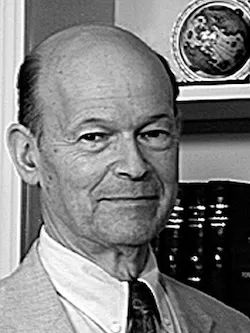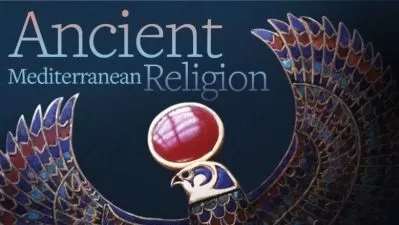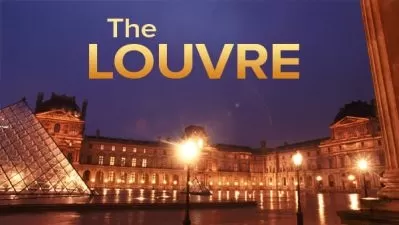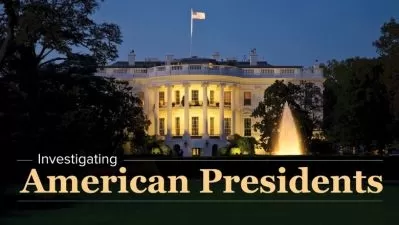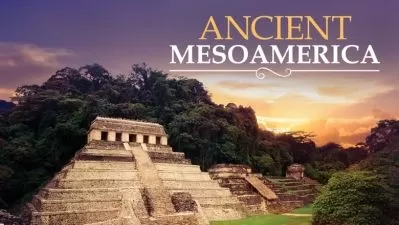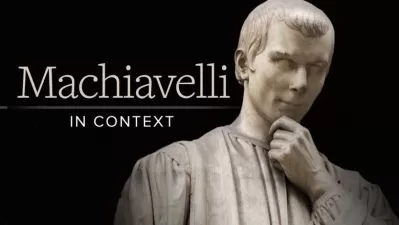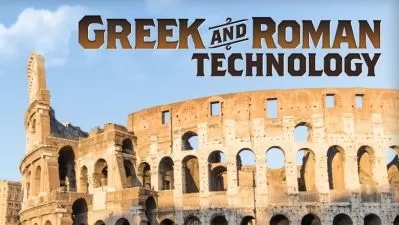European History and European Lives: 1715 to 1914
Jonathan Steinberg
18:08:07
Description
Thirty-five of the most influential people who lived during the 200 most difficult years in the history of the West form the subject of this dramatically different course. Who were these artists, writers, scientists, and leaders in the context of history? How and why did their lives shape our times and reflect their own?
They lived during the years 1715 to 1914, and they include:
- Augustus the Strong—his gargantuan appetites nearly exhausted his royal treasury
- Charles Darwin—a disinterested theology student whose real obsession was to explain things
- Sir Robert Walpole—an extraordinary politician with an even greater mastery of corruption
- David Lloyd George—his incomparable political strengths were put to a radically different purpose
- Mary Wollstonecraft—her groundbreaking manifestos launched feminism but offered little protection from the irony of her own biological destiny
- Captain Alfred Dreyfus—he was condemned to Devil's Island in a notorious miscarriage of justice that foreshadowed the Holocaust
- Napoleon Bonaparte—his conquests and administrative genius turned the French Revolution from chaos and disorder to stability and permanence.
What do these people have in common? And what links them to such similarly disparate figures as Marx and Engels, Marie Antoinette, Edmund Burke, C.P.E. Bach, Metternich, Pope Pius IX, Nathan Rothschild, or Louis Pasteur?
They are all major players in the grand drama of history, whether ruler or statesman, artist or philosopher, general, scientist, or leader of a faith. And each plays a role in this course—a deft mix of history and biography—as a way to understand this history.
A Dramatic Classroom Approach
Professor Jonathan Steinberg makes clear at the outset that this approach is different from anything he has seen in almost 40 years in the classroom.
This course:
- Focuses on 35 people whose lives represent the crucial forces that shaped European history during two decisive centuries
- Examines the transformation of Europe from a world of "lord and serf, horse and carriage, superstition and disease" into today's modern state of "boss and worker, steam and steel, science and medicine."
A March through Living European History
In this innovative course you hear Professor Steinberg's extensive use of carefully chosen quotes from the people themselves and from several biographical sources. This attention to detail also includes musical excerpts when he discusses composers Bach and Wagner.
As you grow to understand the living context of European history, you appreciate the great transforming themes embodied by the people who populate this fascinating march.
The two most important themes are the movement toward democracy—culminating in the French Revolution—that dominated the first of the two centuries covered, and the Industrial Revolution with the explosion of science and technology that dominated the second.
Democracy and Science, Beetles and Battlefields
In choosing the characters whose lives most reflect these themes, Professor Steinberg has not confined himself to those who are most often studied—monarchs, politicians, military leaders—but has included scientists, artists, philosophers, and industrialists, and even an entire population threatened with starvation—the Irish.
Professor Steinberg ably explores how the nature of absolute rule evolves from the unquestioned autocracy of a ruler like Augustus the Strong to the many styles of enlightened absolutism exemplified by rulers such as Maria Theresa of Austria, Catherine the Great of Russia, and Holy Roman Emperor Joseph II.
You see how the success of even enlightened rulers was ultimately betrayed by limitations, whether imposed by human nature, the backwardness of a realm, or the nature of reason itself.
You follow the emergence of the public sphere, the shattering of artistic boundaries, and the creation of new marketplaces as bold new visionaries including Samuel Johnson, Goya, C.P.E. Bach, Goethe, and Wagner take the public stage.
You watch as science achieves a profound new importance—often at the expense of religion—as theories and discoveries of people such as Charles Darwin and Louis Pasteur are framed by historical context.
Professor Steinberg draws pictures with words, from the image of Darwin excitedly stuffing a newly captured and squirming beetle into his mouth because he has nowhere else to put it, or a description of Napoleon's profound battlefield influence on his troops—an ability to inspire loyalty that helped make his life, in Professor Steinberg's words, "the single most important" encountered in this lecture series.
It is, considering the company kept during these 36 lectures, a bold statement.
Why History through Biography?
After an introductory lecture on history as a "soft" science, Professor Steinberg describes his course as a road map to the period in which the world of Europe becomes like our own and a new "self," set in a new social reality, becomes the dominant actor.
Each of the remaining 35 lectures is named for, and devoted to, a personality or group of people. The lectures unfold chronologically over 200 years.
"To lecture on lives raises a serious problem of method," says Professor Steinberg. "Much of what happened in the years 1715 to 1914 depends on the lives and activities of ordinary people whose struggle for existence and happiness makes up the great story of modern history.
"Changes in population, disease, famine, immigration and emigration, factory labor, strikes and trade unionism, literacy, emancipation of women, armies, and empires are mass phenomena, not individual ones. No single life can remotely express these huge forces," he points out.
"What justifies the biographical approach?" asks Professor Steinberg. He gives three reasons:
"First of all, it is fun. It is in our nature to be interested in one another. The people whom we shall study are among the most interesting people who have ever lived.
"Second, it is way to look at the great changes. If we see the times in which our figures lived as a kind of lens or magnifying glass, we can look for the background, as well as the foreground. We know what they could not: What happens next.
"Third, it is a way to educate ourselves. It draws out our awareness of ourselves and our world."
By looking at what even the greatest of the actors of the past could not see or understand, we get a glimpse of what we may be missing in our own thinking. When we observe the way people in the past seemed unaware of great changes now obvious to us, we have a useful moment of self-doubt. What are we missing in our world? We become one degree less self-confident that we know what is going on.
"That touch of humility, that creative moment of hesitation, that openness to the possibility that we might be wrong, those are the signs of a real historical education," states Professor Steinberg.
More details
User Reviews
Rating
Jonathan Steinberg
Instructor's CoursesDr. Jonathan Steinberg is the Walter H. Annenberg Professor of Modern European History at the University of Pennsylvania. He completed his undergraduate work at Harvard University. He earned his Ph.D. from Cambridge University and served for 30 years as University Lecturer in European History, Fellow of Trinity Hall, Cambridge, and Vice-Master. Professor Steinberg served as an expert witness in the Commonwealth of Australia War Crimes prosecution and was also appointed to the Historical Commission of the Deutsche Bank A.G. Frankfurt am Mein to examine bank activity under the Nazis. Professor Steinberg is the author of Yesterday's Deterrent: Tirpitz and the Birth of the German Battle Fleet, Why Switzerland?, and All or Nothing: The Axis and the Holocaust. His reviews have appeared in The London Review of Books, The Evening Standard, The Financial Times, and The Times Literary Supplement. Professor Steinberg has written many radio and TV documentaries, including the BBC Radio Four's salute to the U.S. Constitution, Secure in their Persons. He is a member of the Board of Trustees of Franklin College in Lugano, Switzerland, and the Presidential Advisory Commission on Holocaust Assets.

The Great Courses
View courses The Great Courses- language english
- Training sessions 37
- duration 18:08:07
- English subtitles has
- Release Date 2023/04/27





